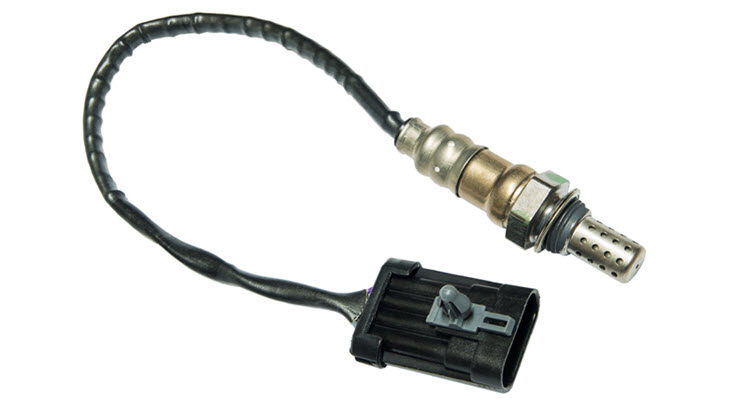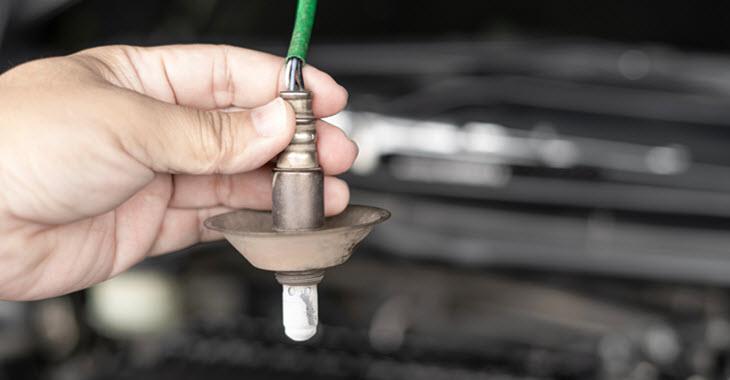
Toyota O2 Sensor Failure in Lowell: Tips For Avoidance
by Mechanics Direct December 9, 2023As a Toyota owner, you are probably aware of the importance of proactive maintenance in keeping your vehicle in top condition. Among the crucial components to monitor, the oxygen sensor stands out as a key element.
An oxygen sensor, also called the O2 sensor, measures the oxygen ratio in the exhaust gases to ensure optimal engine performance. Located in the exhaust system, it determines if the air-fuel mix is too rich (fuel-heavy) or too lean (air-heavy). The sensor contains a ceramic element coated with platinum that reacts with oxygen to generate a voltage signal. This signal varies depending on the oxygen levels.
When the engine runs, the O2 sensor heats up and begins to generate a voltage that corresponds to the amount of oxygen in the exhaust. The Engine Control Unit (ECU) receives this voltage and adjusts the fuel injection rate accordingly. If the mixture is too rich, the voltage rises, prompting the ECU to reduce fuel input. If it is too lean, the voltage drops, and the ECU increases fuel.
O2 sensor failure can result in various issues, such as reduced gas mileage, increased emissions, and engine performance issues. To prevent this costly and inconvenient problem, it’s imperative to understand the causes of O2 sensor failure and implement preventative measures.
Common Reasons the O2 Sensor Fails
Age and Mileage
O2 sensors have a finite lifespan and can wear out over time. This wear and tear is especially common in older Toyotas with higher mileage. O2 sensors are subjected to extreme conditions in the exhaust system, and their performance can deteriorate over the years. Typically, these sensors are designed to last between 60,000 to 90,000 miles, but the actual lifespan can vary depending on factors like driving conditions and the quality of the sensor itself. As your car accumulates miles, it’s essential to keep an eye on the health of your O2 sensors, especially if it is approaching or has exceeded the recommended replacement interval.
Contaminants
O2 sensors are highly sensitive components that require a clean and uncontaminated environment to function properly. Exposure to contaminants like oil, coolant, or silicone can damage O2 sensors. For instance, if there is an engine leak, such as an oil or coolant leak, and these fluids come into contact with the O2 sensor, they can create deposits on the sensor’s surface, reducing its ability to accurately measure oxygen levels in the exhaust gases.
Poor Quality Fuel
The quality of the fuel you use can have a direct impact on your O2 sensors. Low-quality or contaminated fuel can introduce impurities into the combustion process. These impurities may include sulfur, which can coat the sensor and hinder its performance.
Use These Methods to Prevent O2 Sensor Damage
Use the Right Fuel
The quality of the fuel you use can significantly impact your O2 sensors. High-quality fuel from reputable sources contains fewer contaminants like sulfur, which can be harmful to O2 sensors. Lower-quality fuels may contain more impurities that can lead to sensor damage over time. To avoid O2 sensor issues, it’s crucial to choose premium or top-tier gasoline for your Toyota.
Inspect Exhaust and Fuel System Regularly
Regular inspections of your exhaust and fuel system are crucial for detecting leaks or other issues that can lead to O2 sensor failure. Damaged or corroded components in these systems can expose the O2 sensor to contaminants and extreme conditions, causing it to malfunction. By addressing these issues early, you can prevent sensor damage and ensure the proper functioning of your vehicle’s emissions control system.
Regular Maintenance
Adhering to the scheduled maintenance interval for your Toyota is vital because it allows you to replace O2 sensors before they fail, ensuring that your engine continues to operate at its peak efficiency. Regular maintenance checks can also help identify potential problems before they escalate.
Revitalize Your Toyota with Professional O2 Sensor Solutions
Understanding the common causes of Toyota O2 sensor failure and following the avoidance tips can go a long way in preserving your vehicle’s performance, fuel efficiency, and environmental impact. However, we know that sometimes, despite all efforts, issues can still arise. That’s where Mechanics Direct steps in.

At Mechanics Direct, we specialize in providing top-notch automotive care, and we are well-equipped to cater to your Toyota O2 sensor needs. Whether you reside in North Chelmsford, Chelmsford, Dracut, Tyngsborough, Westford, Lowell, MA, or any surrounding areas, we are here to help. Our expert technicians are trained to diagnose and resolve O2 sensor issues promptly and effectively. Book your next service with us now!

 MON – FRI: 8:00 AM – 5:00 PM
MON – FRI: 8:00 AM – 5:00 PM
 Mechanics Direct is rated 4.6 out of 5 stars
Mechanics Direct is rated 4.6 out of 5 stars Text Us
Text Us